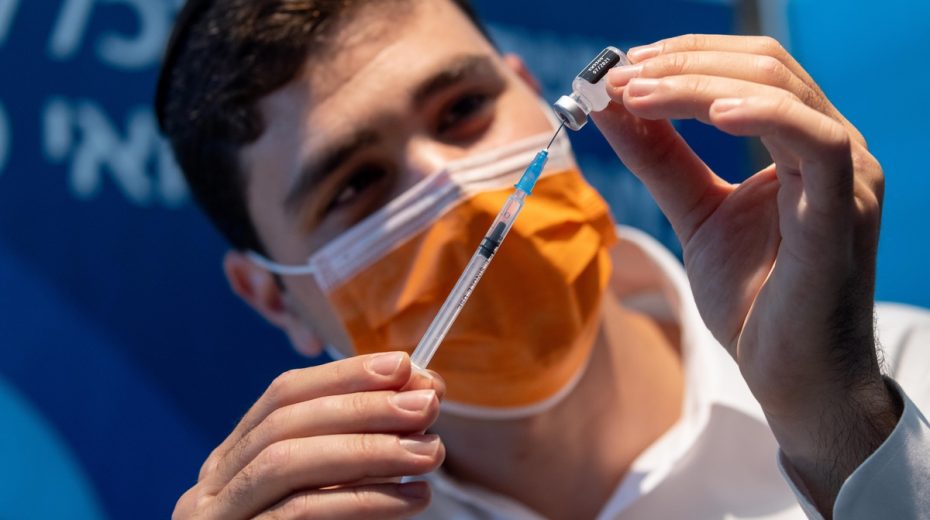One of the major objections to the COVID-19 vaccine, particularly among teenagers, has been that it can cause myocarditis, a dangerous inflammation of the heart muscle. But a new Israeli study has concluded that this side effect, at least when taking the Pfizer vaccine, is both extremely rare and easily treated.
The study was conducted by the largest of Israel’s state-funded HMOs, Clalit, and the findings published in The New England Journal of Medicine. It examined some 2.5 million Israelis who had received at least two doses of the Pfizer vaccine.
Just 54 of those 2.5 million Israelis developed myocarditis as a result of the COVID vaccine. In other words, there is a mere 0.002% chance of such a side effect occurring. Of those 54, only one person developed a severe case of myocarditis and required hospitalization. He has since fully recovered.
The study did confirm that young males between the ages of 16-29 are far more susceptible to this side effect, but even among that demographic only 10.7 out of every 100,000 people developed myocarditis.
US authorities have been leaning heavily on the data coming out of Israel as they determine if and when to administer the vaccine to younger age groups, as well as booster shots to the general public.
Silencing dissent?
Some maintain that there have been far more negative side effects from the COVID-19 vaccines than the Ministry of Health and Israel’s HMOs are willing to admit.
Last week, the Ministry of Health published data showing a minuscule rate of negative side effects. But comments started rolling in on social media claiming the numbers were inaccurate, and those who said their side effects hadn’t been taken into account spoke out against the vaccine.
Channel 12 News reported that ministry officials began deleting many of the comments, which only fed the notion that a cover-up was underway.
The Ministry of Health later released a statement asserting that the removed comments had contained abusive language, lies and “fake news.”
Israelis ready to vaccinate young children
Speaking of vaccinating younger children, a survey conducted this week by Bar-Ilan University found that a 57% majority of Israelis are ready and willing to vaccinate their 5- to 11-year-olds.
Israel’s government has been debating approving the vaccine for this younger age group amid concerns that the return to school could spark a fresh outbreak of COVID-19.
Already a large percentage of the nation’s 12- to 18-year-olds are fully vaccinated, and children over the age of 15 can get the booster shot if their second vaccine dose was received more than six months ago.
In fact, this reporter can confirm that his oldest son (age 17) and his classmates were all urged by their high school administration to get their booster shots to ensure their “Green Passports” don’t expire.
But while Israelis are prepared to vaccinated even their young children, it seems very few are willing to go first.
The Bar-IIan survey revealed that just 27% of parents said they would vaccinate their 5- to 11-year-olds within the first month of the vaccine being approved for that age group. Twenty-seven percent would wait one to three months and 24% would wait much longer (some up to a full year) to make sure there are no side effects.















